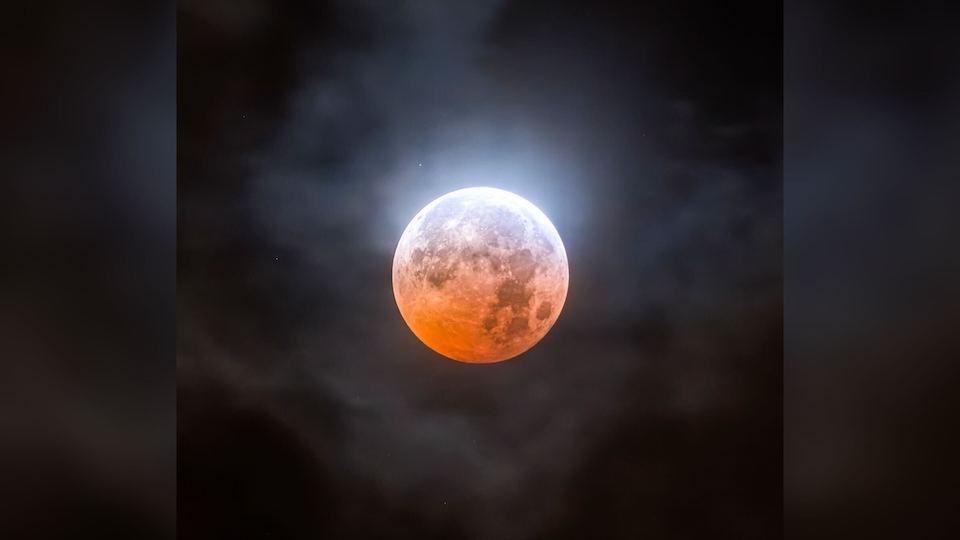A Ā鶹“«Ć½Ó³»photographer has captured an awe-inspiring perspective of a total lunar eclipse in local skies — even though it was snowing during part of the rare astral event.
Locals had an opportunity to view the last lunar eclipse for the next three years in the wee hours of Tuesday (Nov. 8) morning. Viewing conditions were weather dependent, of course, and many people decided to stay indoors following an unseasonably early snow event Monday night.
But one committed astrophotographer braved the elements hoping to capture the rare display in Vancouver.
Liron Gertsman has produced several spellbinding images of rare space events, including one that earned him a nod from NASA as one of its coveted "Astronomy Image of the Day" selections. The jaw-dropping photograph shows — known as the Two Sisters or Ch'ich'iyúy Elxwíkn, in the Squamish language.
While he's dealt with some less-than-ideal conditions for capturing his photos, the odds were stacked against the space enthusiast for this week's total lunar eclipse.
Recording the total lunar eclipse in 2022 in Vancouver
Around 2:15 a.m. Tuesday, Gertsman headed out to capture the eclipse, despite feeling that he wouldn't get a clear view of it through the cloud coverage. He brought his Canon EOS R5, which he uses for everything from deep space to wildlife photography, as well as a 560 mm lens to get a detailed perspective of the moon.
To capture the full eclipse, he used a tripod and a star tracker camera mount. After aligning the star tracker with the north star, he was able to focus his camera on the moon as it moved across the sky without touching it again. In total, he captured approximately 1,000 images of the eclipse on a timelapse.
But the expert astrophotographer notes that the editing process is paramount to the success of the final images.
"What the camera captures is not as good as what we see with your eyes," he told Ā鶹“«Ć½Ó³», noting that even the most advanced digital cameras only capture about half of the dynamic range of the human eye.
"The total eclipse was visible off and on through the gaps passing clouds between 2:16 a.m. and 3:41 a.m. this morning. While I expected the clouds to make photography difficult, they actually provided a very unique opportunity, framing the moon beautifully."
While he recorded the eclipse until about 4 a.m., Gertsman was editing the photographs for a couple of more hours when he got back home.
The image he shared with V.I.A. was taken at the end of the eclipse "so the shadow of the earth was leaving the moon and as a result, the top of the moon was getting brighter and the bottom was blood reddish orange," he described.
"For photography, this lit up the clouds beautifully."
Have a look at this timelapse Gertsman shared on his Instagram.
Follow Gertsman on or check out his photography on his .



